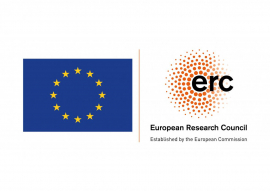Project summary
Unobserved heterogeneity and endogeneity are prevalent notions throughout econometrics. Most of the literature focuses on scalar unobserved heterogeneity. But it implies strong restrictions on the heterogeneity of the behaviour of economic agents. This is the case in a binary treatment effect model where scalar unobserved heterogeneity and additive separability are equivalent to the very restrictive monotonicity assumption. Nonparametric random coefficients models allow for multiple sources of unobserved heterogeneity and are in line with structural economics. They are also benchmark nonseparable models and can be generalized in various ways. Due to unobserved heterogeneity, but also simultaneity or error in variables, structural models usually involve as well endogenous regressors.
The research proposal is concerned with inference on flexible models – nonparametric or high-dimensional – with multiple sources of unobserved heterogeneity and endogeneity. Nonparametric models of unobserved heterogeneity or estimation by instrumental variables usually give rise to ill-posed inverse problems. High-dimensional methods are a new set of tools that are becoming increasingly popular in econometrics and allow to handle new data configurations with many more potential regressors than observations. They are based on convex relaxation, linear or conic programming ideas, or Monte-Carlo Markov Chains. They usually behave well when the model is well approximated by a parsimonious model where many coefficients are zero (e.g. exclusion restrictions) or there is a structured sparsity (structural breakpoints or other patterns) but the identity of the zeros (or breakpoints, etc.) are not known in advance. They also offer new tools for adaptive nonparametric estimation. In this project, I propose to further investigate the use of these methods to handle unobserved heterogeneity and endogeneity in various models from economics, in particular in programme evaluation, demand for differentiated products, social interactions and game theory.
The expected impact of the project is 1) theoretical developments, including partial identification, rates, adaptation, robust confidence sets and finite sample inference, 2) the development of computationally efficient methods and computer programs, 3) many empirical applications in various fields from economics.

